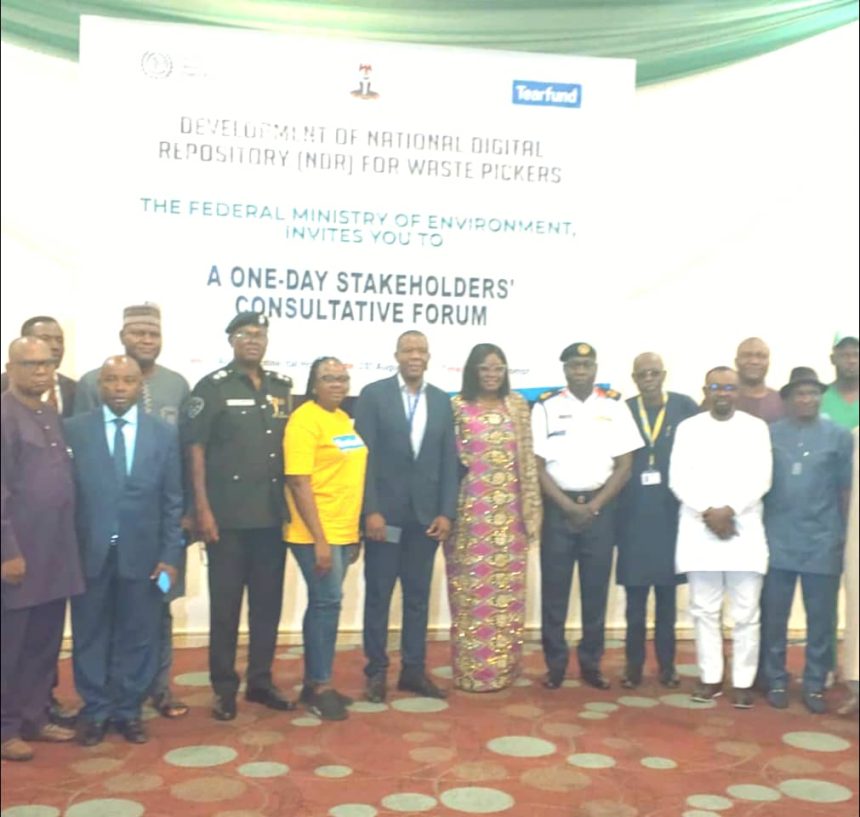From David Onuoja, Abuja
The International Labour Organization (ILO), in collaboration with the Federal Ministry of Environment and Tearfund Nigeria, has called for the National Digital Repository for Waste Pickers in Nigeria.
Director, ILO Country Office for Nigeria, Ghana, Liberia, Sierra Leone and the ECOWAS, ¥. Phala Vanessa, represented by Stephen Agugua, National Project Coordinator, at a One-Day, Consultative Stakeholders Forum to Develop a Repository for Waste Pickers in Nigeria has said.
He said, the Stakeholders Forum was organized to develop a National Digital repository for waste pickers in addressing the myriads of challenges they face in the course of performing their work.
Vanessa stressed that, despite the crucial environmental and public health role they play, waste pickers often face significant human rights impacts.
The ILO added that the Universal Declaration of Human Rights and core ILO standards, the principles concerning fundamental rights in the eight ILO core conventions as set out in the ILO Declaration on Fundamental Rights and Principles at Work must be maintained.
According to him, “with approximately 2.01 billion metric tonnes of solid waste is generated globally each year. It is therefore, a significant impact on the environment, society and human health, are gradually becoming an increasing challenge for the world.
“A concerted effort is required to ensure that waste streams are effectively controlled using sound waste management practices. When managed well, waste offers opportunities for creation of jobs in the circular economy.
“These considerations have motivated the interventions and actions of ILO within this sector.
“AS a UN agency, the ILO is also bounded by the Fair Circularity Principles which applies the expectations and responsibilities outlined in the UN Guiding Principles on Business and Human Rights to the informal waste sector”, he said.
The International Labour Organization equally urged the stakeholders to acknowledge the responsibility to respect the rights of informal waste sector workers by preventing and addressing human rights impacts experienced by those workers, in line with the nature of the company’s involvement.
“Engage all partners in plastics packaging recycling value chains towards coherent and comprehensive approaches.
“Engage government actors to create enabling environments for rights-respecting business practices and apply a gender lens in efforts to address human rights impacts in the informal waste sector.
“Drive local approaches, tailored to local contexts and advocate for the inclusion of informal waste sector workers as relevant stakeholders in policy-making processes that may affect their livelihoods.
“Promote greater integration of the informal waste sector into a formal value chains and also identify and address barriers to promoting rights-respecting practices in the informal waste sector”, it declared.






